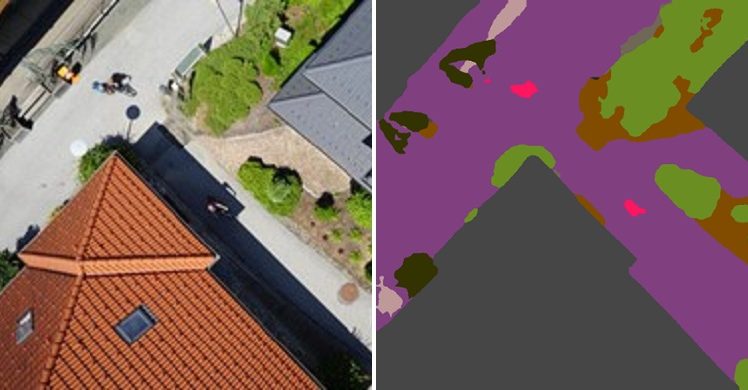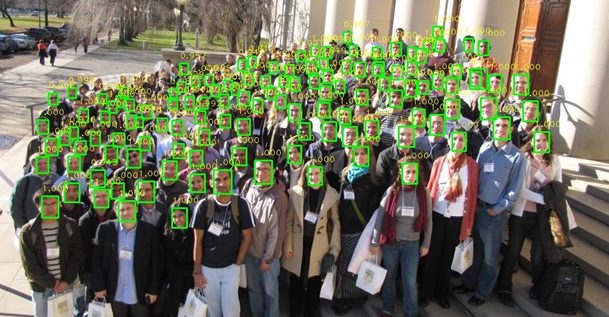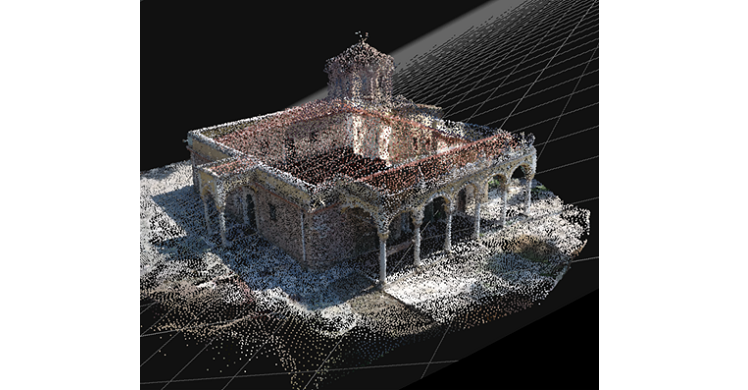DESCRIPTION
CVML Web Lecture Series: 208 on-line web lectures!
After the very successful completion of a) several very successful CVML short courses in 2018-2021 and b) the 2021 edition of the CVML Web Lecture Series, attracting many hundreds of registrants worldwide and their praising comments, AIIA Lab (AIIA.CVML research group) offers an asynchronous mode to study the following CVML Web Lecture Modules, containing in total more than 208 Lecture at your disposal:
Deep Learning and Neural Networks |
(12 Lectures) (14 Lectures) (7 Lectures) |
Deep Learning and Computer Vision Foundations and Tools |
(11 Lectures) (9 Lectures) (3 Lectures) |
Computer Vision/Image Processing and 3D Imaging |
(12 Lectures) (9 Lectures) (21 Lectures) (17 Lectures) (9 Lectures) (5 Lectures) |
Autonomous Systems |
(8 Lectures) (3 Lectures) (8 Lectures) (15Lectures) (4 Lectures) |
Human centered computing. Social Networks. Graph Theory |
(15 Lectures) (10 Lectures) |
Digital Signal Processing and ApplicationsDigital Signal Processing and Analysis Medical Image and Signal Analysis |
(11 Lectures) (7 Lectures) (4 Lectures) (4 Lectures) (2 Lectures) |
Click on a CVML Web Lecture Module to see its content description and sample material of each of its lectures. Lecture materials are: ppt/pdf, video, questionnaires that allow you to study at your own pace.
Each CVML Web Lecture Module provides an overview and an in-depth presentation of a scientific topic. Their union covers most topics in an MSc program on Computer Vision, Machine Learning and Autonomous Systems.
An asynchronous CVML Web Course consists of one or more CVML Web Lecture Modules, typically totaling up to 16 1-hour lectures each. It corresponds to the material typically taught in a) a 1-semester MSc or senior undergraduate course or b) a CVML (live) short e-course.
Each student can choose appropriate CVML Web Lecture Modules to form a CVML Web Courses of his/her choice, each totaling up to 16 lectures or more in case one module has more than 16 lectures. See popular choices under REGISTRATION.
You can also self-assess your CVML knowledge by filling appropriate questionnaires (one per lecture) and you will be provided programming exercises to improve your CV programming skills.
REGISTRATION
CVML Web Lecture Modules totaling up to 16 lectures (or more in case one module has more than 16 lectures) can be composed to form a CVML Web Course of each registrant, to facilitate personalized learning.
Popular CVML Web Course compositions:
- a) Computer Vision. b) CVML Mathematical Foundations.
- a) Autonomous Drones. b) CVML Development and Programming Tools
- a) Machine Learning. b) CVML Mathematical Foundations.
- a) Neural Networks/Deep Learning. b) Autonomous Cars.
- a) Signal and Systems. b) Digital Signal Processing and Analysis
A special CVML Web Course is also provided, as a potpourri introduction to many different CVML topics:
Computer Vision, Machine Learning and Autonomous Systems.
Choose and enter CVML Web Lecture Modules to form a CVML Web Course of your choice:
Registration fee for each CVML Web Course: 141 Euros
Register!
The AIDA students are entitled 50% discount for Web Course registration. This offer is related to the upcoming educational activities of International AI Doctoral Academy (AIDA) http://www.i-aida.org/ that is co-initiated by these two projects.
AIDA student Register!
After the completion of your payment, please fill in the form below:
Complete your registration
Other special CVML Web Courses containing any CVML Web Lecture set (16 Lectures) can be available upon request, to meet your personal learning needs, by sending a message as described in the section IF I HAVE A QUESTION?
A certificate of attendance will be provided.
Upon successful completion of more than 14 CVML Web lecture understanding questionnaires (mark equal or above 5 in the range 0-10, 10 being excellent) with 2 months after receiving CVML Web Course material, you can receive a certificate for its successful completion with or without an entry of 0,5 ECTS (depending on your choice).
CVML Tutorial Exercises
In this section you can find 3 exercises on 2D Computer Vision/Image Analysis, 2 exercises on Computer Vision (CV), 11 exercises on CVML Mathematical Foundations, 33 exercises on Image Processing, 11 exercises on Machine Learning/ Pattern Recognition and 15 exercises on Video Processing and Analysis to improve your knowledge on these topics.
CVML Programming Exercises
In this section you can improve your programming knowledge on 6 3D Imaging exercises, 5 Computer Vision exercises, 20 Image Processing exercises, 2 Neural Networks/ Deep Learning exercises, 1 Signals and Systems exercise, 2 Machine Learning exercises and 6 Video Processing and Analysis exercises through programming exercises using OpenCV, PyTorch and CUDA.
CVML WEB LECTURE VIDEOS
Many of the CVML web lectures are accompanied by videos. Here is a representative example:
https://www.youtube.com/convolutional-neural-networks
CVML SOFTWARE
The following tools are available for demos and student training in the various CVML courses:
- 2D computer vision and image processing software EIKONA.
- 3D image processing and analysis software EIKONA3D
SELF-ASSESSMENT
You can now assess your CVML knowledge and background by performing the exercise described in:
https://aiia.csd.auth.gr/cvml-knowledge-self-assessment/
It takes you only 15 minutes per questionnaire. You can perform the self-assessment exercise before/after trying the course material to assess your progress You can do this double self-assessment (before/after study) for free, using the sample lecture study material provided below.
LECTURER
Prof. Ioannis Pitas (IEEE fellow, IEEE Distinguished Lecturer, EURASIP fellow) received the Diploma and PhD degree in Electrical Engineering, both from the Aristotle University of Thessaloniki (AUTH), Greece. Since 1994, he has been a Professor at the Department of Informatics of AUTH and Director of the Artificial Intelligence and Information Analysis (AIIA) lab. He served as a Visiting Professor at several Universities.
His current interests are in the areas of computer vision, machine learning, autonomous systems, intelligent digital media, image/video processing, human-centred computing, affective computing, 3D imaging and biomedical imaging. He has published over 1000 papers, contributed in 47 books in his areas of interest and edited or (co-)authored another 11 books. He has also been member of the program committee of many scientific conferences and workshops. In the past, he served as Associate Editor or co-Editor of 9 international journals and General or Technical Chair of 4 international conferences. He participated in 70 R&D projects, primarily funded by the European Union and is/was principal investigator/researcher in 42 such projects. Prof. Pitas lead the big European H2020 R&D project MULTIDRONE: https://multidrone.eu/. He is AUTH principal investigator in H2020 R&D projects Aerial Core and AI4Media. He is chair of the Autonomous Systems Initiative https://ieeeasi.signalprocessingsociety.org/. He is head of the EC funded AI doctoral school of Horizon2020 EU funded R&D project AI4Media (1 of the 4 in Europe).
He has 32000 citations to his work and h-index 85+ (Google Scholar)
Prof. Pitas lead the big European H2020 R&D project MULTIDRONE and is principal investigator (AUTH) in H2020 projects Aerial Core and AI4Media. He is chair of the Autonomous Systems initiative https://ieeeasi.signalprocessingsociety.org/.
Educational record of Prof. I. Pitas: He was Visiting/Adjunct/Honorary Professor/Researcher and lectured at several Universities: University of Toronto (Canada), University of British Columbia (Canada), EPFL (Switzerland), Chinese Academy of Sciences (China), University of Bristol (UK), Tampere University of Technology (Finland), Yonsei University (Korea), Erlangen-Nurnberg University (Germany), National University of Malaysia, Henan University (China). He delivered 90 invited/keynote lectures in prestigious international Conferences and top Universities worldwide. He run 17 short courses and tutorials on Autonomous Systems, Computer Vision and Machine Learning, most of them in the past 3 years in many countries, e.g., USA, UK, Italy, Finland, Greece, Australia, N. Zealand, Korea, Taiwan, Sri Lanka, Bhutan.
https://aiia.csd.auth.gr/computer-vision-machine-learning/#pitas
https://scholar.google.gr/citations?user=lWmGADwAAAAJ&hl=el
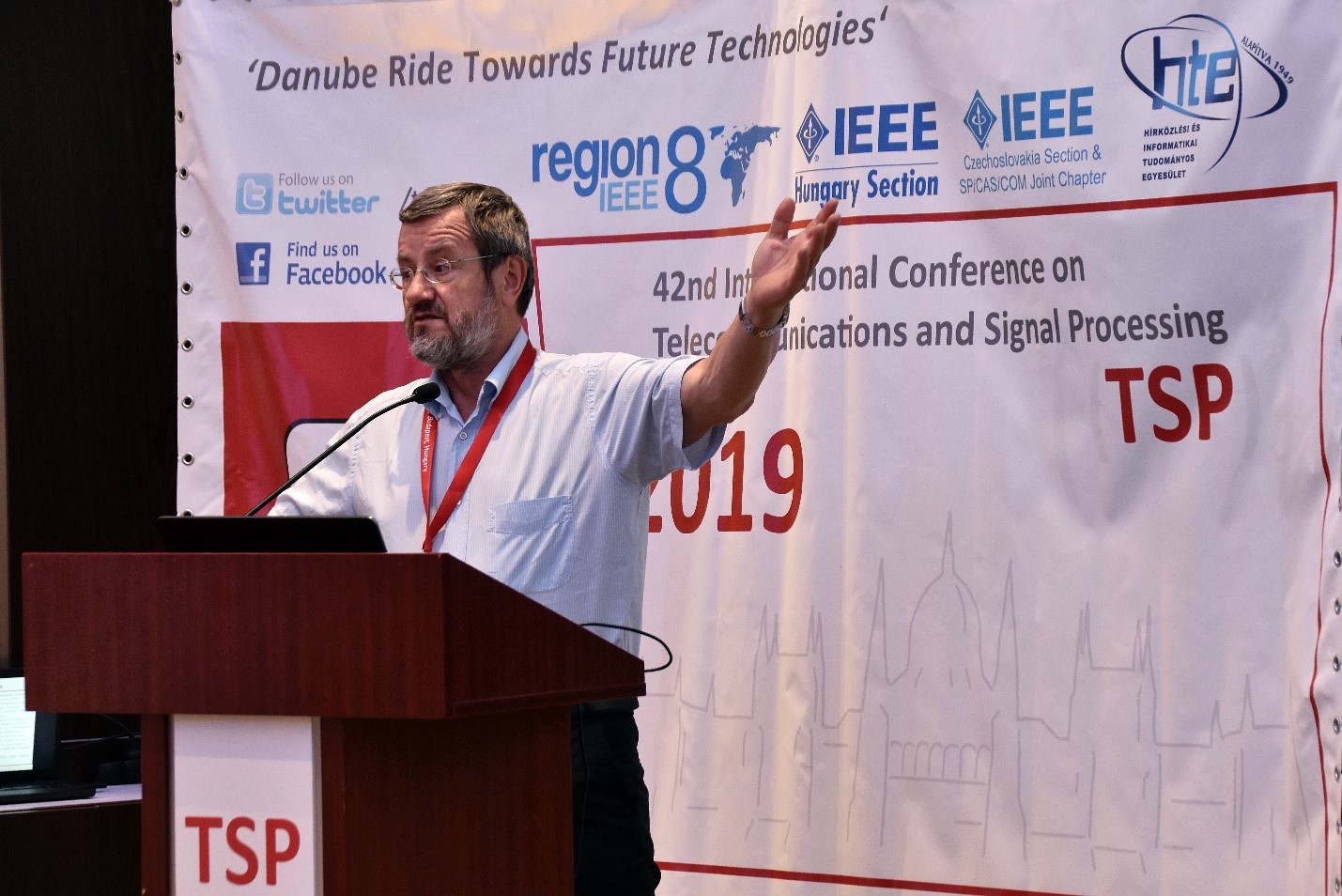
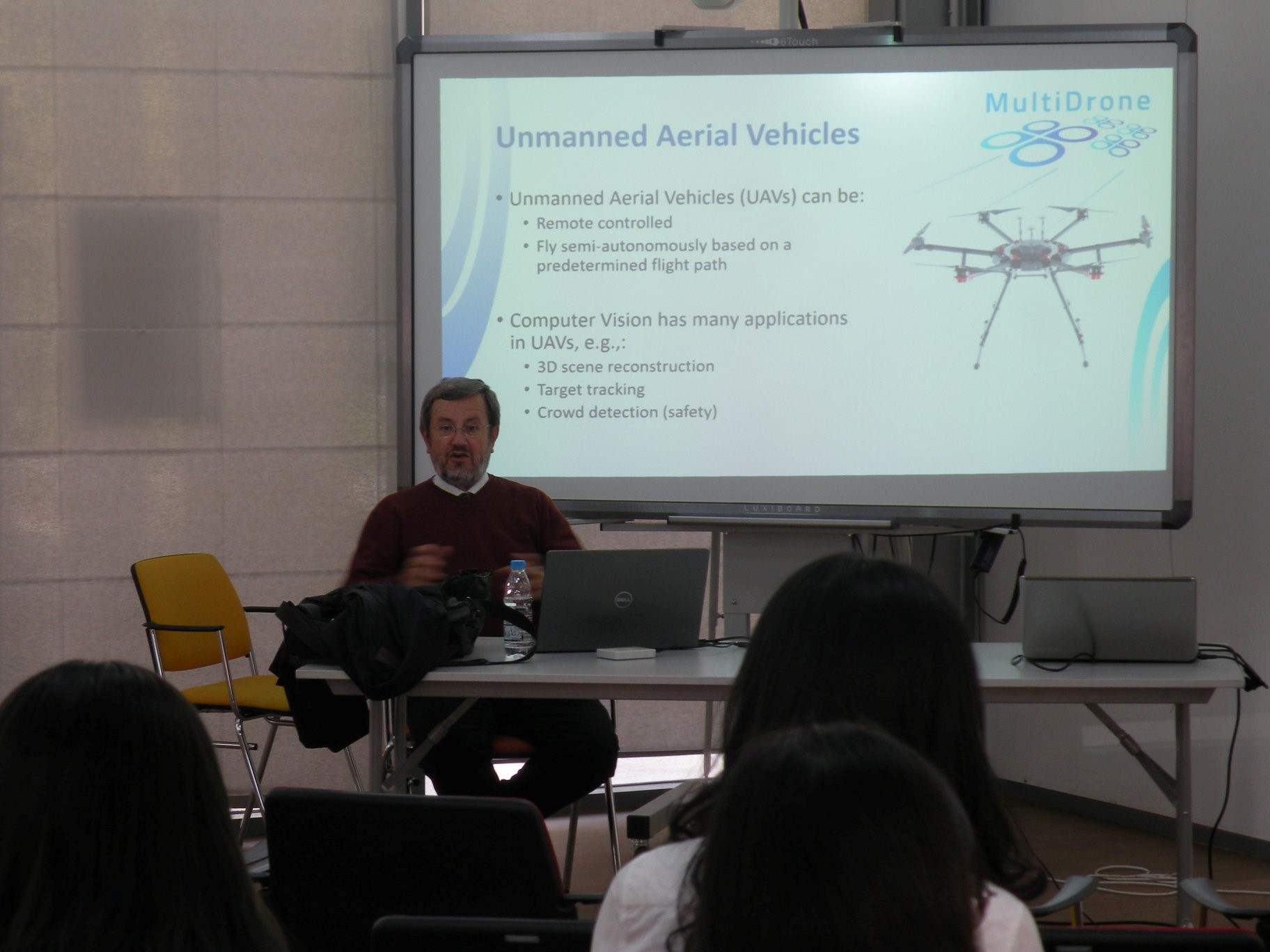
STUDY, SUPPORT AND CERTIFICATES
Depending on your background and pace, it will take you around 2 months to finish each CVML Web Course and run all questionnaires, at a rate of 4 lectures/week.
All material and correspondence are in English. You will be provided email and/or Skype support for understanding questions for a period of 1 month after your registration.
Upon successful completion of more than 14 questionnaires (mark above 5/10), you will receive a certificate for the successful completion of this course.
AUDIENCE
Any engineer or scientist practicing or student having some knowledge of Mathematics (Calculus, Linear Algebra, Probabilities), notably CS, CSE, ECE, EE students, graduates or industry professionals with relevant background. For certain topics, some knowledge of the following topics is desirable: Signals and Systems, Image Processing, Computer Vision, Machine Learning.
IF I HAVE A QUESTION?
PAST CVML WEB COURSE EDITIONS
CVML Web Lecture Series (Winter 2020)
CVML Web Lecture Series (Spring 2020)
RELATED LITERATURE
- I. Pitas, 3D imaging science and technologies, Amazon CreateSpace preprint, 2021.
- I. Pitas, Computer Vision and Machine Learning for Autonomous System Perception, Amazon CreateSpace preprint, 2021.
- I. Pitas, Digital video processing and analysis, China Machine Press, 2017 (in Chinese).
- I. Pitas, Graph analysis in social media, editor, CRC Press, 2016.
- I. Pitas, Digital Video and Television, Createspace/Amazon, 2013.
- I. Pitas, Digital Image Processing Algorithms and Applications, J. Wiley, 2000.
- N. Nikolaidis and I. Pitas, 3D Image Processing Algorithms, J. Wiley, 2000.

